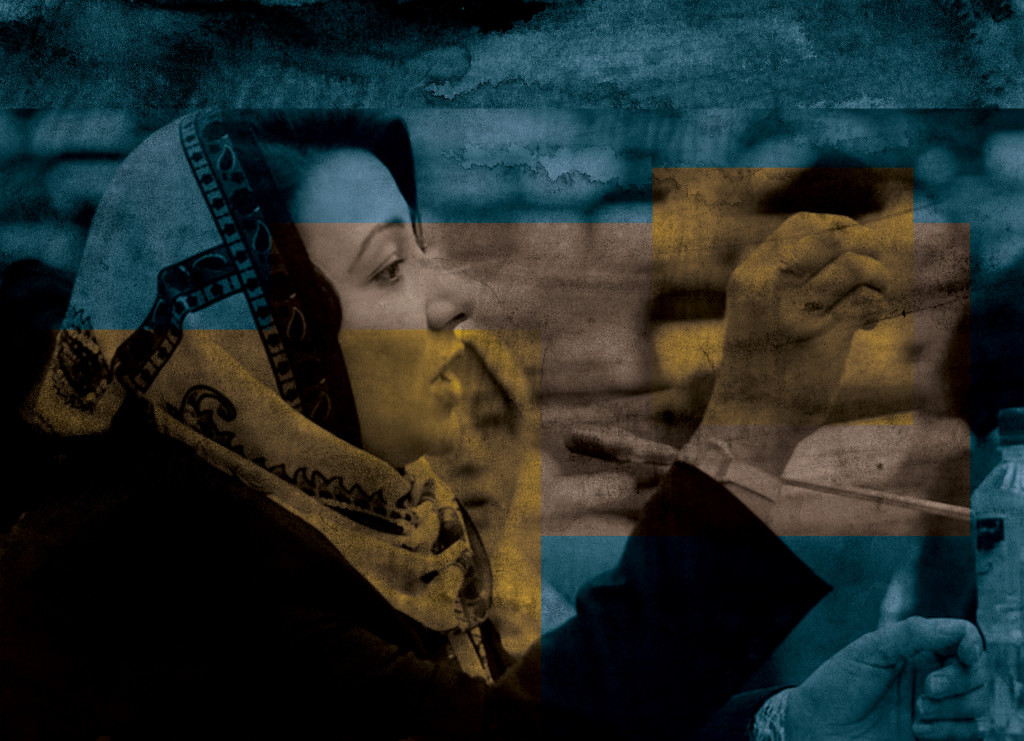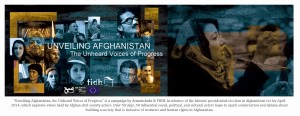Azita Rafa’at is a human and women’s rights activist from Badghis province. She was a people’s representative in the Emergency Loya Jirga to elect the transitional administration in 2002. She later served as a Member of Parliament for Badghis province.
Can you share with us some memories of times when your rights have been violated and how it has influenced your life?
When I was a 10th grader in 1993, my family was forced to leave Kabul. It was the day when 10,000 rockets hit the city. The place where my family and I lived was hit by rockets more than 18 times. My father had to move the bodies on the streets to open a route for us to leave the city. This is the bitterest memory of my life; it still haunts me to this day.
During my entire adolescence, a time when I should have been striving for intellectual and personal growth, Afghanistan was besieged by civil wars. My only wish and focus was that my family members would stay alive in dignity. My family and I, like thousands of other innocent families in Afghanistan, were deprived of our wellbeing, our stability, our peace of mind. Our house in Badghis was bombed during the height of the civil war. I couldn’t have a normal adolescence: we were just trying to stay alive. I have spent so many years in a state of crisis. I cannot forget the things we have been through.
Can you tell us about any specific occasions where the human rights of a family member or friend were violated?
No family in Afghanistan has escaped the scourge of war. Every family has experienced human rights violations during the different periods of Afghanistan’s history. When the mujahedin were fighting the government, my cousin was a teacher and engaged in social activities in Badghis. He encouraged the young people to learn and to study. He even managed to set up a mobile school. And for these reasons, at just 20 years old, my cousin was stoned to death, simply because he was a teacher and tried to encourage people to think for themselves.
What are three important achievements of the new era in Afghanistan?
1. Increased participation of women in education, politics and the economic sphere;
2. Plurality of, and public access to, the media, and freedom of speech;
3. Approval of the Constitution.
What do you see as a positive development in Afghanistan? What gives you confidence for the future?
The extensive societal engagement and participation of a new generation of educated youth gives me hope for Afghanistan. They have constructive ideas for the future of their country and don’t confine themselves within narrow ethnic, religious, and organisational boundaries like their predecessors did.
What are the three biggest challenges facing Afghanistan?
1. The absence of civic teachings;
2. The rate of unemployment amongst educated Afghans;
3. The brain drain.
Will the present-day Afghanistan allow schools to once again be closed to girls and women excluded from social participation?
I hope that won’t happen again, but I can’t help but worry and fear that it might. Our history has shown us that ultimately, women are the victims of defective policies in Afghanistan.
What are some factors which hinder women’s participation in social, economic, political and cultural spheres?
The varied and sometimes obsolete interpretations of laws; the predominance of outdated and patriarchal views, and the lack of adaptation to modern times; the prevalence of violence in cultural, economic and political fields; the exacerbation of security and economic crises; and the low levels of literacy amongst women.
What are the three major demands of women?
Women want to see increased coordination between governmental bodies and non-government organisations advocating for women’s rights. They want to see the laws under which they live being implemented in line with principles, rather than in the arbitrary way they are often applied. And finally, women are calling for laws to be revised and updated to make them compatible with the values and needs of the society.
Which sources and centres of power can women rely on to promote their rights and demands?
I think, in theory, we do not have a shortage of dependable sources and centres for laws and policies. The main problem is the failure of implementation, and people’s lack of trust in law and institutions.
What have you done in your personal and professional life to fight against discrimination?
As a civil and political activist and someone who has personally experienced discrimination, I have always endeavoured to take effective action, both individually and collectively with other activists. When I was a Member of Parliament, I fought for laws that offered protection against discrimination. I worked alongside anti-discrimination activists and other MPs who believed in equal rights, and together we were successful in promoting and passing many anti-discrimination laws, including in relation to the children’s criminal laws. Notably, we raised the age of criminal responsibility to 18 years old for both sexes, in accordance with the Convention on the Rights of the Child. Previously, the age of criminal responsibility was 13 years old for boys and 9 years old for girls. We also introduced legislation establishing a Gender Unit in the Government ministries, and revised the Prisons Law to provide appropriate facilities for female prisoners and for the education of their children.
Do you have a specific message to share with the world?
We are living in a delicate period of history. We are affected by various crises. It is essential for all of us, men and women alike, to do our utmost to have a positive effect on our society, in particular at the time of these elections, in order to ensure a future in peace. My motto is: “If I rise up, if you rise up, everybody will rise up. If I sit down, if you sit down, who then will rise up?”
“Unveiling Afghanistan, the Unheard Voices of Progress” is a campaign by Armanshahrand FIDH, which explores views held by Afghan civil society actors. Over 50 days, 50 influential social, political, and cultural actors hope to spark conversation and debate about building a society that is inclusive of women’s and human rights in Afghanistan.
Follow 50 interviews drawn from the “Unveiling Afghanistan campaign” daily on the Huffington Post.
Follow Unveiling Afghanistan on FIDH Twitter: www.twitter.com/fidh_en


